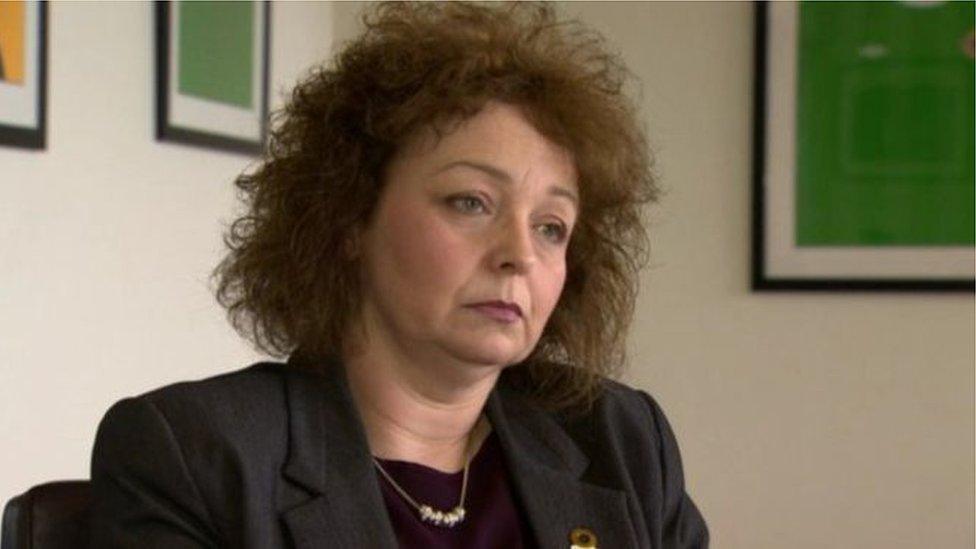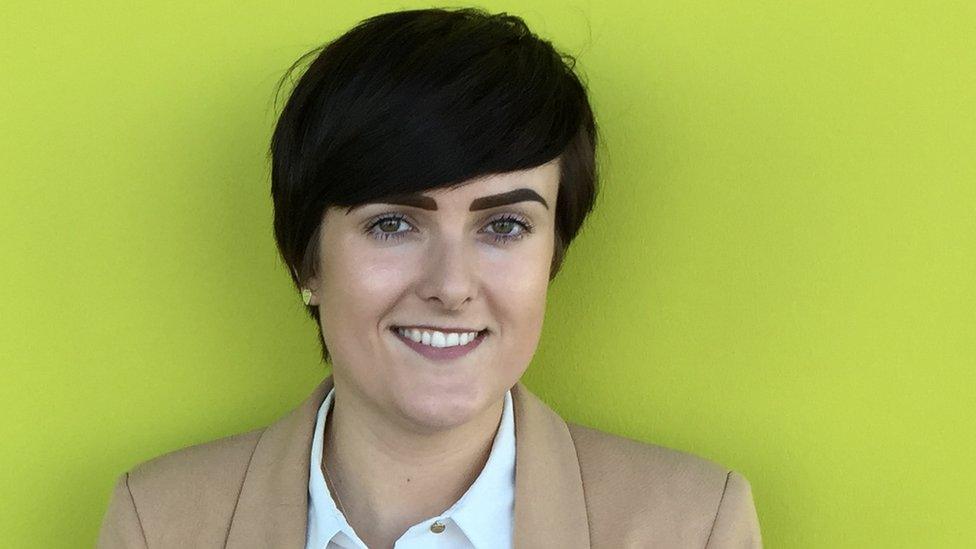Ex-prisoners' children 'discriminated against' in US travel
- Published

The children of some ex-paramilitary prisoners are being discriminated against after two had difficulties trying to visit the US, Sinn Féin's Niall Ó Donnghaile has said.
Belfast man Jim Donnelly claimed his background had led to his teenage son having travel authorisation rejected.
Mr Donnelly was released under the Good Friday peace agreement 21 years ago.
A US Consulate spokesman said the Department of State did not comment on individual visa cases.
"We remain committed to facilitate valid travel for individuals, including business, tourism and for programs that build community ties," he said.
People wanting to travel to the US should make sure they have an Electronic System for Travel Authorisation (ESTA) or visa "well in advance of travel", he added.
The ESTA is an online form that citizens of 38 countries can use to waive their need for a full US visa, allowing them to stay in the country for 90 days or fewer.
'It politicises young people'
Mr Donnelly told the BBC's Talkback programme his 15-year-old son was "extremely disappointed" when his ESTA application was rejected.
Allow X content?
This article contains content provided by X. We ask for your permission before anything is loaded, as they may be using cookies and other technologies. You may want to read X’s cookie policy, external and privacy policy, external before accepting. To view this content choose ‘accept and continue’.
"I was in prison before he was born," said Mr Donnelly.
"A 15 year old who happens to have a father who was involved in a conflict 22 years ago - is that fair?" he asked.
"It politicises young people when they then begin to ask: 'Why was I rejected?'
He said he believed it was against the principles of the Good Friday Agreement, which was signed in 1998 and led to the end of the Troubles in Northern Ireland.
"My son has been denied over something that happened before he was born," he added.
'Barred after checking in'
Sinn Féin MLA Carál Ní Chuilín, who spent four years in jail, said her youngest son also had issues entering the US.
She said he had been successful in the ESTA process but then "got to check-in and was told he was barred".
Her son went to US Consulate and was asked questions about his mother, she alleged.

Carál Ní Chuilín claims her son was questioned by US officials
"The children of political ex-prisoners or even their relations are facing discrimination," she said.
Mr Ó Donnghaile said he had written to the Good Friday Agreement Implementation Committee, asking it to engage with the US Embassy about "the children and grandchildren of former political prisoners here being barred from travel into America".
'Spirit of generosity gone'
Tom Roberts, a former Ulster Volunteer Force (UVF) prisoner and director of the Ex-Prisoners Interpretative Centre, which helps loyalist former prisoners resettle into communities, said it did not just affect republicans.
"Republicans don't have monopoly on injustice as a result of the conflict," he said.
"I was in transit to Nicaragua and was taken off the plane at Houston Airport and was deported back to Northern Ireland."
He said travel authorisation was "one of a raft of issues" affecting ex-prisoners and their families.
"There was a commitment in Good Friday Agreement to facilitate the reintegration of ex-prisoners, allowing them to resume a full citizenship.
"Unfortunately the spirit of generosity that existed around the time of ceasefires has dissipated - it's all but gone."
- Published28 September 2018

- Published9 April 2018
